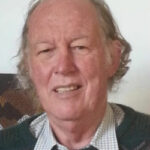A harmonious future: In loving our faith, appreciating others
Nov 13, 2022
The number of conflicts finding a basis in religion is unfortunately long, with these conflicts bringing much suffering to our world.
Even today they are painfully present. The ‘War on Terror’ was almost exclusively focused on Islam, while Muslims understood it as a new crusade mounted by Christendom. Buddhists in Sri Lanka spent over 20 years fighting the mainly Hindu Tamil Tigers, while many Muslims in the Middle East still seek to destroy the Jewish state of Israel. Individual and group acts of terror are often motivated by religious fervour. The question of co-existence between faiths is as crucial today as it ever was, indeed perhaps even more so in a world become a global village.
It serves us well to reflect on this history and work toward a more harmonious future during ‘Interfaith Week’ (November 13-20).
Can adherents of different faiths live harmoniously together when many of those faiths identify their faith as uniquely true, seemingly meaning others must be false? Is it possible for a Christian understanding the exclusive role of Jesus in the divine plan of salvation, to truly appreciate Islam, in which it is held, that while Jesus is highly affirmed, he stands second to Muhammad as God’s revelation? Can a Theravada Buddhist, sceptical of the gods, understand the devotion to the divine held by those of the theistic faiths?
Many view different faiths as alternate pathways to a divine summit, each path, distinct, singular in its variety, but leading to the same goal. Only when one is a far along the path is it possible to see, from near the summit, just how similar they are, and the commonality of the peak to which they lead.
Another way to look at this is to examine a word of which these religions often speak concerning themselves, truth. As one Roman governor once asked, what is truth? It is a good question, and not as easily understood as thought. First, there is truth beyond argumentation. I am at this moment alive. I could not very well be writing this if not! This is an uncontestable fact. Then there is contested truth. Is Mozart, Bach or Beethoven the greatest musician? This contested truth will generate great argument, with others casting other names forward. How would we judge such anyway?
Then there is personal truth. My wife is the loveliest woman in the world may well be true to me, but not to others who would hopefully, if they have one, would hold their wives to be. In no way am I, by making the statement that my wife is the most beautiful, precluding or even wanting others to drop claims concerning their wives in favour of my statement. By objective measurement such a truth is meaningless as it is not open to any falsification, yet this truth may be the type we hold deeply above all others. It will probably mean far more to me than the absolute, incontestable truth that Mount Everest/ Chomolungma is the world’s highest mountain.
My contention is that adherence to a faith being true is of like type to that of the last example. My faith is true in my commitment to and deep love of it. By claiming truth for my faith, I am not necessarily claiming non-truth for another’s. The truth of my faith begins usually in that I am born into it. If by chance, I was born in Iran I would almost certainly be a Muslim, in Bhutan, a Buddhist. I have grown and lived in my faith. In a sense I have worn that faith. It has become my home, my trail to the summit. This has given me a profound appreciation of it, but that doesn’t preclude me from appreciating another’s faith. Surely the greatest lover of Mozart is unlikely to suggest that the music of Bach or Beethoven has no worth? More likely, by the sensitivity engendered by their listening to Mozart, their appreciation of other musicians, will deepen.
To be truly deeply Christian is to appreciate the faith, of say a Hindu, and to recognise truths contained within that faith. That truth, extending beyond being just a particularity for them, instead has meaning for me also. Likewise, the truths of Christianity for a Hindu.
As we reach deeper into our faiths, traveling further and higher along our distinct paths to the summit, we each begin to see, while appreciating the distinctive beauties of our trail, the convergence of our paths and the commonality of our goal, though spoken of in different languages.




